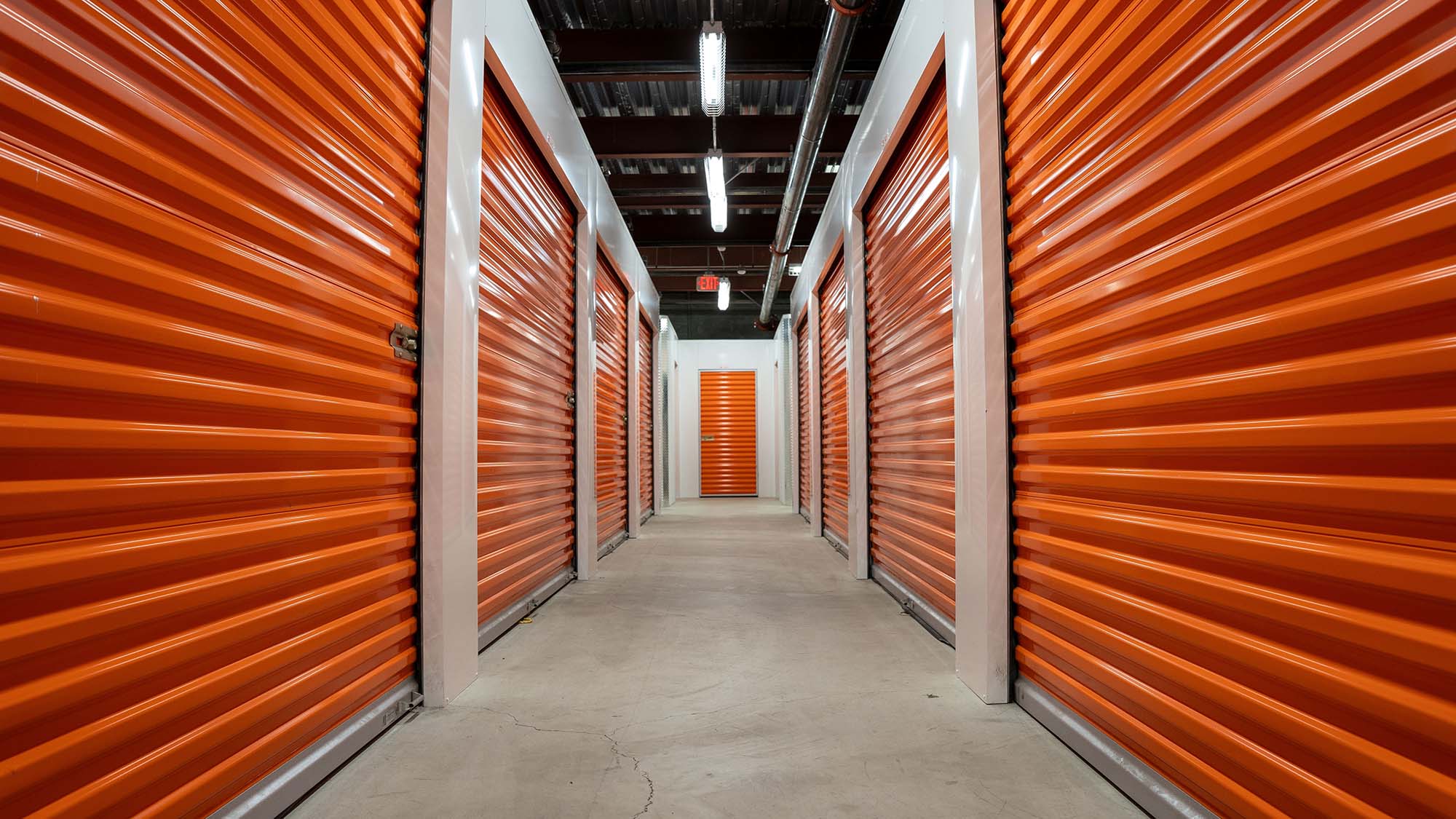April 25, 2025

Efficient warehouse organisation is essential for smooth operations, faster order fulfilment, and maximised space management. Without a proper system, inventory can be challenging to track, leading to misplaced stock, delays, and financial losses.
Learning how to arrange stocks in warehouses is key to improving efficiency. From electronics and business storage to personal items like pet treasures, proper organisation ensures easy access, better safety, and a streamlined workflow.
Below are 20 effective ways on how to arrange stocks in warehouses for hassle-free business operations.
Categorise Stock by Type
Grouping similar items together helps prevent confusion and makes order processing faster. This is useful not only for businesses but also for personal storage. For example, electronics should be kept separate from bulky items or liquid ingredients to avoid damage. Creating clear sections for each product category ensures better organisation and easy access.
Label All Storage Areas
Labelling is essential for quick identification and minimising human errors. Use colour-coded labels, barcodes, or digital tracking to ensure warehouse staff can locate stock without delays. Labels should be placed on shelves, storage bins, and even floor markings to guide movement.
Common Labelling Methods in Warehouses
Labelling Method | Description | Best For |
Colour-Coded Labels | Assign different colours to specific categories or sections | Quick visual identification |
Barcodes and QR Codes | Scan to track and retrieve inventory details instantly | Large warehouses and automation |
Shelf and Bin Labels | Labels placed on racks and bins for easy stock location | Organising smaller stock units |
Floor Markings | Arrows or labels on the floor to indicate stock zones | High-traffic areas & safety |
Use a FIFO (First-In, First-Out) System
Implementing FIFO (First-In, First-Out) is a key strategy in arranging stocks in warehouses efficiently. This method ensures older stock is used first, preventing waste and reducing the risk of obsolete inventory.
FIFO is especially important for perishable goods, climate-controlled items, and electronics, which may have a limited shelf life. By organising stock based on arrival dates, warehouses can optimise inventory turnover and maintain product quality.
Implement a Clear Aisle System
Designate wide, uncluttered aisles to allow easy movement of staff and equipment, like forklifts or pallet jacks. Proper aisle spacing ensures quick navigation, reduces accidents, and improves overall workflow. Narrow or blocked aisles can lead to delays, workplace hasards, and inefficient stock retrieval.
Store Heavy Items at the Bottom
Placing heavier stock on lower shelves helps maintain stability and prevent accidents in the warehouse. This setup reduces the risk of items toppling over and protects fragile inventory, such as electronics or pet treasures. Lighter items should always be stored on upper shelves for easier access and safety.
Additionally, ensure that shelves are reinforced to handle bulk business storage. For example, a warehouse storing appliances and small accessories can place washing machines or refrigerators on lower racks, while lighter items like cords or manuals can go on upper shelves.
Use Climate-Controlled Warehouse for Sensitive Items
Some items require climate-controlled warehouses to protect them from extreme temperatures and humidity. A reliable storage provider should offer this feature to prevent damage and maintain product quality.
Items That Need Climate-Controlled Storage
Item | Reason |
Clothing | Long-term storage of clothes requires temperature control to prevent mould growth caused by humidity. |
Artwork | Paintings and art supplies must be stored at 50% humidity and 70-75°F to prevent fading, warping, or moisture damage. |
Musical Instruments | String, brass, and woodwind instruments can crack or warp due to temperature fluctuations. |
Special Collections | Items like coins, stamps, and wine require a stable environment to preserve their condition and prevent deterioration. |
Paper-Based Items | Books, documents, and business records are highly sensitive to humidity, which can cause pages to yellow, fade, or become brittle over time. |
Household Appliances | Electronics and mechanical parts can rust, crack, or grow mould in extreme conditions. |
Organise Based on Order Frequency
Place high-demand items in accessible areas close to dispatch zones to speed up retrieval times. Less frequently ordered stock can be placed in back sections or higher shelves. This method optimises workflow by minimising unnecessary movement.
Maximise Vertical Storage Space
Warehouses often have unused vertical space that can be optimised with multi-tier shelving, mezzanine floors, or stackable racks. This is particularly beneficial for mini warehousing setups where floor space is limited. Investing in vertical storage allows for better space utilisation while keeping the warehouse organised.
Keep Personal Storage Separate
If employees require personal storage for their belongings, designate a separate area away from business stock. This prevents mix-ups and ensures that workspaces remain uncluttered. Providing lockers or designated storage bins for staff helps maintain organisation.
. Use Clear Storage Bins for Small Items
For small inventory such as electronic accessories, spare parts, or pet treasures, transparent storage bins make it easier to identify contents without needing to open them. This saves time and ensures quick stock retrieval.

. Implement a Digital Inventory System
Using a Warehouse Management System (WMS) allows real-time tracking of stock, reducing manual errors. Digital systems help with automated stock updates, reorder notifications, and barcode scanning, ensuring smooth operations.
. Colour-Code Storage Sections
Assigning colours to different storage zones simplifies navigation. For example:
Red: High-priority stock
Blue: Electronics section
Green: Climate-controlled storage
. Regularly Declutter and Remove Excess Stock
Stock that is outdated, damaged, or slow-moving should be removed periodically. This helps free up space for new arrivals and improves warehouse efficiency. Partnering with a storage provider in Dubai can help manage excess inventory.
. Secure Valuable Stock in Restricted Areas
High-value items, such as electronics, should be stored in monitored, access-controlled sections. This reduces the risk of theft and ensures better security for expensive products.
. Implement Pallet Racking for Bulk Storage
For business storage, pallet racking systems offer a structured and efficient way to handle bulk inventory. They help organise products in layers, ensuring better accessibility while optimising warehouse space.

. Train Staff on Stock Management Practices
Warehouse employees should be trained on proper storage techniques, safety procedures, and equipment handling. A knowledgeable team ensures better efficiency, reduced damages, and faster processing times.
. Use Mobile Shelving for Flexibility
Mobile shelving allows for dynamic adjustments based on inventory needs. This is ideal for warehouses handling seasonal stock changes or varying product sizes.
. Keep Emergency Exits and Safety Equipment Clear
A clutter-free environment ensures quick access to emergency exits, fire extinguishers, and first-aid stations. Safety should always be a priority in any warehouse setting.
. Partner with a Reliable Storage Provider
A trusted storage provider, such as ARENA Storage, can help manage overflow stock, business storage, or seasonal inventory. They offer secure, climate-controlled, and flexible storage solutions tailored to warehouse needs.
Conduct Routine Stock Audits
Regular warehouse audits help identify missing stock, prevent discrepancies, and improve overall efficiency. Conducting audits monthly or quarterly ensures that inventory records remain accurate.

Final Thoughts on Organising Stocks in Warehouses
Organising stock efficiently is essential for smooth warehouse operations, faster order processing, and better space management. By following these 20 tips on how to arrange stocks in warehouses, you can optimise storage, improve safety, and streamline workflow.
For businesses needing additional storage solutions, partnering with a trusted storage provider ensures secure, organised, and accessible space for extra stock and decluttering needs.
